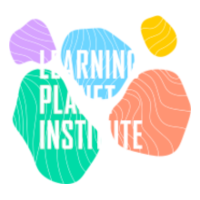On March 14, we had the chance to press pause on the present and step into a space where the future felt a little more tangible. This opportunity came through a full-day Futures Learning Lab hosted by the Learning Planet Institute and led by the UNESCO Future Literacy Lab along with UNESCO-MOST BRIDGES Coalition focused on “Learning for Planetary Citizenship and Anticipatory Governance.”
The session brought together students from Arizona State University (ASU) and LPI in a dynamic, hands-on environment designed to challenge how we think about the future. Through open discussions, collaborative exercises, and collective reflection, we questioned assumptions, shared perspectives, and explored new ways of approaching the future—not just as individuals, but as a connected global community.
What is Futures Literacy Labs?
Futures Literacy is about understanding how we think about the future and how that influences the choices we make today. It helps people become more aware of where their ideas about the future come from, and opens up new ways of thinking and acting.
In Futures Literacy Labs, people learn by doing—working together to explore different futures and reflect on how those ideas can shape better decisions in the present. (Adapted from UNESCO, Futures Literacy)
Planetary Citizenship & Governance
Planetary citizenship is the idea that we share responsibility not just within our nations, but across the world and across generations. It encourages global cooperation to protect shared resources—like the environment—and recognises our role in passing on a healthy planet and cultural heritage to future generations. (Adapted from Thompson, 2001, Governing for the Environment)
This vision set the stage for the Futures Learning Lab, which built on the Youth Consultation hosted at LPI in September ahead of the UN Summit for the Future. During the session, participants were invited to engage with some of the most pressing questions of our time:
- How can we enable multi-stakeholder collaboration for planetary decision-making?
- How do we learn to collaborate across people, places, technologies, and ecosystems?
- What does it mean to make decisions that centre planetary well-being?
These questions anchored the day’s reflections and opened up space for imagining what planetary citizenship might look like in practice.
Feeling & Mapping the Future
To begin the day, participants shared personal reflections on their emotional relationship with the future. Responses ranged from feeling scared and excited in the face of uncertainty, to hopeful, trusting that something good eventually emerges. Some spoke of a deep connection to their ancestral past, recognising the wisdom passed down through generations. Others described a mix of uncertainty and joy as they approached key life transitions like graduation, new beginnings, and the hope of doing meaningful work.
This grounding in emotion set the tone for the next step: exploring what comes next. Using a systems thinking approach, participants worked together to identify trends and “probable futures” across multiple dimensions—sociocultural, technological, economic, environmental, political, and ethical. Rather than accepting these trajectories as fixed, the group used them as a launchpad to imagine preferred futures and consider how we might begin to shape them—together, with awareness, intention, and care.
Participants also examined how current governance models often focus more on the personalities of decision-makers than long-term vision. The lab introduced the concept of “governing for the future”—an anticipatory approach that goes beyond reacting to crisis, instead embracing future thinking in policy and planning.
A Chance Encounter: Meeting Dr. Nsah Mala
A standout moment from the day was meeting Dr. Nsah Mala, PhD—an award-winning bilingual poet, writer, educator, and futures practitioner. His work bridges literature, environmental humanities, and anticipatory governance, with a strong focus on sustainability, climate justice, and intergenerational responsibility. He currently chairs the Mbessa Kingdom Indigenous Commission for Future Generations and Sustainability in Cameroon.
Dr. Mala holds a PhD from Aarhus University, where his award-winning research explored how literature—poems, plays, and novels—can inspire environmental action and resilience in the Congo Basin. His work is a powerful reminder of how storytelling and the arts can drive meaningful change.
Looking Ahead
During the closing reflections, participants were reminded how this lab connects to wider global processes. In particular, the outcomes of the session will contribute to the follow-up report of the Future Generations Commission, and align with the priorities of the Future Generations Pact launched during the UN Summit for the Future in September 2024. These connections offer a concrete pathway for insights from the lab to inform ongoing global efforts around intergenerational justice and anticipatory governance.
To co-create meaningful futures, we must first develop our capacity to imagine them. Strengthening our long-term vision fosters a deeper sense of agency and helps us make more intentional choices today. This means becoming aware of the assumptions we carry and being willing to look beyond them. Only then can we truly begin to shape the futures we want to live in—together.





